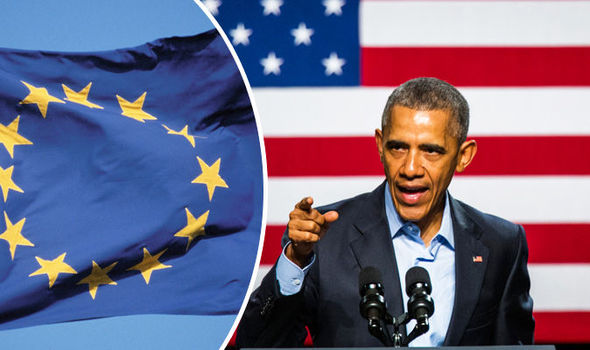
Obama: A communications misstep that might lead to brand damage for Remain.
In a thoroughly good BBC interview led by Hugh Edwards, President Obama very eloquently and rather forcefully put forward his view that the UK should remain in the EU. His reasoning being that the UK would struggle to get a trade deal with the USA outside of the EU. In an earlier interview he also said “the UK would go to the back of the queue” if it was to negotiate a separate trade deal with the USA outside of the EU. Pretty strong words by any measure.
Obama clearly thinks the UK should remain as part of the EU and everyone from Government to the BBC believes his endorsement of Remain will help encourage undecided voters to vote for Remain. My sense is that coming out as strongly as he has for Remain may actually have the opposite effect.
In the interview Obama did add that nothing else about our “special relationship” would change, his argument for the UK staying in the EU centred entirely on trade.
From a brand perspective, Obama was totally ‘on message’ for the Remain camp. The whole remain argument having now centred on trade and the potential issues the UK would face in trying to re-negotiate trade deals with the EU and the USA and the potential economic impact this might have. With Obama’s position so aligned to the overarching narrative of the Remain camp, it was clear he’d been briefed.
It all looks like a ‘slam-dunk’ for the Remain camp. However, for me, there are three reasons why Obama’s strong support for brand Remain could back-fire and turn out to be a communications misstep for the Remain campaign:
- By centring on the single issue of trade and in the absence of a clear narrative on immigration and transfer of powers, there is a real risk that people will feel like the UK is being held to ransom. It could be interpreted as the UK being told it has to accept uncontrolled EU migration and the transfer of many laws to the ECJ in return for the privilege of doing trade. The reverse being that if the UK decides to leave the EU and re-patriate laws and rejects free movement of people, the EU will punish the UK through a less than favourable trade deal. Either way, it doesn’t bode well for future relationships.
- Having Obama come out so strongly for Remain, and so aligned to the central narrative of the Remain campaign, looks like what Nigel Farage has been calling an ‘establishment stitch-up’. We’ve already seen a general movement against the establishment order, for example the election of Jeremy Corbyn, the popularity of Trump, a boat name Boaty McBoatface. Obama’s interview juxtaposed with the pal-y pictures of him and Cameron in a golf cart does nothing so quash this view.
- And finally, Obama perhaps didn’t consider British culture and attitude before making his comments. The UK is a proud island nation with a history of standing up to authoritarianism and supporting the underdog. And Brits certainly don’t like being told what to do by outsiders. Obama’s threat that the UK would “go to the back of the queue” is more likely to get two fingers and drive many people to vote to leave.
All together, whilst the Remain camp may well be patting themselves on the back for a job well done, believing that Obama’s intervention will encourage the undecided to vote Remain, my feeling is there’s a real risk here of unintended consequences. All things considered, it’s a risky strategy that’s just as likely to have the opposite effect to what was intended.
From a brand perspective, when your campaign has variously been described as negative, scare-mongering, and an establishment stitch-up, is it really a good idea to get the tallest kid in the playground to tell every body what to do else they’ll go to the back of the line? Perhaps it would’ve been more powerful if Obama had stayed neutral.

